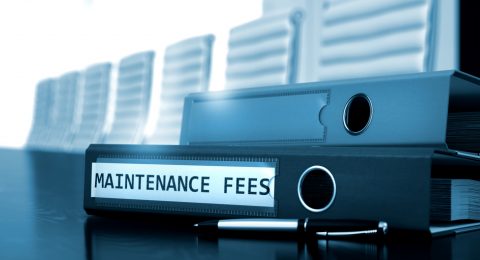Homeownership could be the ultimate life-long goal. But, when prepping for such investment, people usually focus on the offered price and jump into the deal without factoring in the hidden ancillary charges. These extra fees are added up to the actual price tag of for-sale residences, both when purchasing and once a month thereafter, varying from maintenance deposits to utility and parking fees. With regards to Egypt’s property scene, some new tariffs have freshly entered the game, namely real estate taxes and the controversial beach fees for second homes.
Invest-Gate studies the extra charges partaking in your deal – hidden agenda – from all standpoints of both experts and buyers, devoting a special focus on the changing fees as well as newly-applied/introduced taxes.
Real Estate Taxes

Late summer, the country’s talking heads were occupied with heated discussions over the new real estate tax law and its constitutionality, notably exploring how to fairly calculate taxes on both commercial and residential properties.
The new bill, promulgated by Law No. 196 of 2008 with the issuance of Law No. 4 of 2019, is now deemed crucial to be applied to bridge the state’s budget deficit.
Under the new decree, the tax rate – to be paid annually over two installments – is 10% of the annual rental value, after deducting 30% and 32% for residential and non-residential units, respectively, for maintenance expenses, according to the Real Estate Taxation Authority (RTA).
In the language of mathematics, the rate is calculated as 3% of the capital, which represents 60% of the market value that is evaluated every five years by a central committee, based on the unit’s surface area and meter prices in the neighborhood. Every five years, the value of residential and commercial units maximally increase by 30% and 45%, respectively.
However, there are some exceptions to this regulation. Residential properties valued at less than EGP 2 mn are exempted, while citizens who own more than one residence waive the cheapest one, below EGP 2 mn. For commercial units, the maximum net rental value entitled for exemption is EGP 1,200 per annum.
Although some people started to commit to paying their due property taxes, others – especially residential units owners – are still unaware of its application and do not respond to it for most of them own unregistered houses.
For the government’s part, in November 2018, RTA Head Samia Hussein said during a Customs and Taxation Committee meeting that property owners must go to RTA to prove homeownership and should not wait to receive official notice. Those who fail to register their newly-acquired units are subject to penalties ranging from EGP 200 to EGP 2,000, she stated.
Owners’ delays and levity toward that matter can be attributed to the complicated tax collection system; it should rather be digitized to ease the payments process, Mena Group Founder Fathallah Fawzy suggests.
In fact, the government is already working to resolve the issue. In July, Egypt’s finance and military production ministries signed a cooperation protocol to automate the country’s real estate taxes. Under the deal, the latter party shall establish an accurate electronic database of all owned properties to ease taxation payment, in compliance with the new real estate tax law.
“New buyers are now keen on knowing all aspects related to real estate taxes, including the evaluation and calculation mechanisms, as well as, penalties and exemptions, before making purchase decisions,” Ahmed Rafea, co-founder and sales partner at Cooing, an online real estate one-stop-shop, argues.
Beach Tariffs
 Summer 2019 witnessed a sweeping debate over the state’s possible right to tax the use of seashores. The controversy was initially aroused when Former Dabaa City Head Hassan Abu Taleb earlier in August announced that Minister of Local Development Mahmoud Sharawy had imposed an EGP 150 tax on each square meter of beachfront in Marsa Matrouh.
Summer 2019 witnessed a sweeping debate over the state’s possible right to tax the use of seashores. The controversy was initially aroused when Former Dabaa City Head Hassan Abu Taleb earlier in August announced that Minister of Local Development Mahmoud Sharawy had imposed an EGP 150 tax on each square meter of beachfront in Marsa Matrouh.
These new fees are not valid for the selling value of any unit overlooking the sea is factored into the price already paid by the owner, Cooing’s Rafea sees.
The new beach tax is “illegal and unconstitutional,” as it breaches the contractual terms agreed by both parties (i.e. owner and the government), Khaled El Shalakany, senior managing partner at Shalakany Law Office, reckons.
It is illogical to collect money from homeowners for having waterfront homes. However, such fees can be imposed instead on service providers using the state’s beach spaces, suggesting that the government can offer its vacant seaboards – in cooperation with touristic villages overlooking them – in a rental auction for them, Mena Group founder elucidates.
In response to the aroused contentious discussions and conflicts, the Egyptian government has decided in September to set up a legal committee, headed by the chairman of the Council of Ministers, to study the legal implications of these newly-imposed fees.
Maintenance Fees & Others

An additional cost of owning any residential unit is maintenance fees, which usually cover the cost of the compound’s general upkeep, including units, gardens, roads, facilities, and common areas. Before an owner gets hands on the key to the new home, a maintenance deposit is settled in advance, representing 10% of coastal units and 5-8% of urban properties, according to Aqarmap’s Business Development Manager Ahmed Abdel-Fattah.
After the EGP flotation in November 2016, and the continuous price hikes that followed, some developers – especially of extensive compounds – asked homeowners to pay extra fees as the maintenance deposit does not cover their on-site expenses anymore, Refae notes.
With regards to new properties being marketed after the currency devaluation, he adds that developers did not change the percentage of maintenance deposit since unit prices have already increased in that light.
Other hidden costs are those paid for parking spaces, which are usually an integral part of the unit value. On another note, although clubs are recognized as a fixed service for homeowners in the project’s brochure, developers often ask for membership fees if owners want to use the indoor facilities. These expenses are added to the list of costs that shall be taken into consideration before making any purchase decision, Aqarmap’s Abdel-Fattah says.
Final Word
Nowadays, homeownership can be expensive for many – even in the best of conditions, while some others may get shocked by the bite it can take out of their wallet.
In fact, this may drawback potential investors from making the purchase decision. On the ground, the extra charges, coupled with the increasing unit prices, push some people – especially youth – to rent rather than buy, despite the offered flexible payment plans.
Long story short, there is no way to avoid any of these charges, so keeping them in mind can help make a proper estimate of homeownership’s cost and make a wise decision on whether one can afford all costs of a new home or not.
Read more about the new controversial property fees and taxes on pages no. 26-28 at Invest-Gate’s October issue.